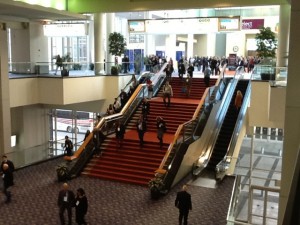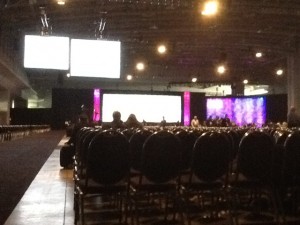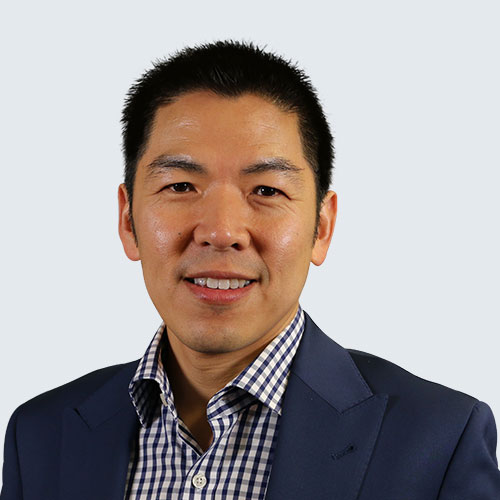This is the 1st post by Dr Herman Lau. Herman is a rheumatologist as BJC Health and it's taken me a while to convince him to contribute to this blog. Leave some feedback to help me convince him to write more.
By Dr Herman Lau, Rheumatologist
I finally get to go to ACR!
There are two huge international rheumatology conferences each year, one in Europe (European League Against Rheumatism EULAR) and one in U.S.A. (American College of Rheumatology ACR). Thousands of rheumatologists and allied health professionals gather to met and share the latest in the field of Rheumatology and musculoskeletal medicine.
This year ACR is held in the beautiful and historic city of Washington D.C, and begins a few days after Mr. Barrack Obama won his second term of presidency.
It is certainly all fun to travel overseas, but it does come with a price. 15 hours flight to Dallas and 3 hours from Dallas to Washington D.C, across a time zone difference of 16 hours, and the conference begins 24hrs after arrival at 7:30am. Basically you have 24hrs to completely flip your sleep cycle by 180 degrees!
 The Convention Centre is huge with free Wi-Fi access for everyone to keep in touch with families and friends. Thank you Apple for creating iMessage and Facetime.
The Convention Centre is huge with free Wi-Fi access for everyone to keep in touch with families and friends. Thank you Apple for creating iMessage and Facetime.
It is my first international conference and I was a little gob smacked by the size of the major hall. I could hardly see the speaker from the back of the hall!
Severely jet lagged but I managed to attend 80% of the lectures, yes, I did doze off a few times but I am sure I was not the only one.
 I have been taking notes diligently to keep myself awake and emailed them back immediately to share with our Rheumatology team.
I have been taking notes diligently to keep myself awake and emailed them back immediately to share with our Rheumatology team.
After a week of intensive lectures, I thought I could wrap things up and chill out a little but I received this email from Dr Irwin Lim,
" Now, while relaxing/reflecting on your long trip back, please consider penning some of your reflections for me and the world: A blog post on: A Rheumatologist's perspective on his 1st time at ACR"
So here I am, writing up a little summary of key messages.
1) Rheumatoid arthritis
There is irrefutable evidence that early detection and aggressive treatment can stop joint damage. The first 3 to 6 months is defined as the 'window' which aggressive treatment can double the chance of inducing remission, and alter the natural history of the disease. We have entered a golden era of rheumatology which for the first time we have good treatment to halt the progression of disease. Regrettably, there are still many patients that fall through the gap and we need to do a lot more to educate our primary care colleagues to detect early rheumatoid arthritis. Tofacitinib has just been approved in U.S.A. for rheumatoid arthritis and it will be an exciting addition to our list of weaponry to fight this disease when it is approved in Australia.
2) Polymyalgia rheumatica
Such a fascinating disease but yet we still don't understand much about this condition. It appears that there is inflammation of the little cushions that sit between bone and muscles or tendons. A more severe condition which results in blood vessel inflammation is far more common then we have previously thought.
3) SLE
The most exciting news is the new medication Belimumab. It is effective in a subgroup of SLE patients with mild to moderate disease activity. Until now we have only a handful of medications for patients with mild to moderate disease who do not need intensive immunosuppressive treatment that we reserve of life threatening complications. Hopefully it won't be long before we have it on our shore.
4) Anti TNF treatment does not appear to increase the risk of lymphoma. A every well designed study in UK analysed their cancer registry and biologic database over a 5 year period and identified 12000 patients on anti TNF treatment. There was no increase in lymphoma risk with anti TNF treatment.
5) Gout
There is enormous amount of data showing the association between hyperuricaemia and cardiovascular morbidity, and renal disease, independent of hypertension and hyperlipidaemia. The trend now is to treat this aggressively.
6) IgG4 disease
This interesting disease has only gained recognition 5 years ago and it affects the pancreas, salivary glands, tear glands and the aorta. We had the pioneers in this field to talk about their latest findings and experience.
7) ANCA positive vasculitis
We had the world leaders debate over clinical cases, whether to use oral cyclophosphamide or rituximab. A very recent clinical trial (RAVE) has given us valuable guidance on the subgroup of patients who should receive rituximab therapy.
8) There were numerous abstracts and posters on RA, SLE, myositis, Sjögren's syndrome and Spondyloarthritis but the one that caught my interest was from a UK physiotherapist Dr Nicola Walsh. She conducted a survey looking at the patient outcome following physiotherapy referral from doctors. She found that physiotherapists would like more input and communication from the referring doctors and that patient compliance is low. I had a chat with her and we agreed that this is an universal problem. It is where our BJC clinic model comes in to address this problem. We are still at infancy with our protocols and measures and I am hoping one day we will have outcome data to prove our concepts.
Despite the hectic program I managed to look around the city and took some photos of the US capital city.
 It is fascinating to see streams of doctors and nurses from all over the world with their nametags around their necks flow into the convention centre at 730am every morning from all directions.
It is fascinating to see streams of doctors and nurses from all over the world with their nametags around their necks flow into the convention centre at 730am every morning from all directions.
This conference has sharpened my clinical knowledge significantly. Yes, I have been so jet lagged and sleep deprived, but my spirit was kept high seeing so many of us sharing the same interest and passion in this wonderful medical specialty.
It is 5:00 am on my flight back to Sydney.
Signing off my first post in our blog.
Dr Herman Lau is a rheumatologist at BJC Health. Read his profile here. Arthritis requires an integrated approach. We call this, Connected Care. Contact us.




